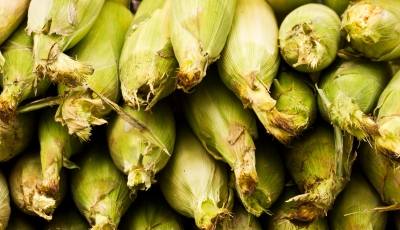
Budget deficits, changing practices could spell end for agricultural subsidies
By Baylen J. Linnekin
Farm subsidies could finally be on the chopping block.
Agriculture Secretary Tom Vilsack recently acknowledged that corn and ethanol "subsidies need to be phased out" over time. And on a swing through Iowa, Mr. Vilsack suggested that the Obama a dministration will support some cuts in next year's budget.
On the right, Sen. Richard Lugar, Republican of Indiana, has called for an end to sugar subsidies, and the budget plan from Republican Rep. Paul Ryan of Wisconsin would reduce agricultural handouts — which often go to large corporate farmers — by $30 billion over 10 years.
This is good news. Agricultural subsidies cost taxpayers more than $15 billion each year, and until those subsidies are eliminated, farming in America will never be sustainable.
Times have changed since Mark Twain described farmers as "fast rising from affluence to poverty." Today's farmers are earning record profits. Coupled with record federal deficits, the case for eliminating agricultural subsidies has probably never been more palatable.
Over the last two decades, the nation's appetite for food from "sustainable" farms has grown immensely. Sustainability is a buzzword, but at its optimum it aspires to maximize the benefits of farming while minimizing its negative impacts. Americans are starting to demand such practices — and they're willing to pay for them.
Consider the rise in organics. Organic food is the fastest-growing segment of the American food industry, accounting for an estimated $23 billion in sales in 2009. Adoption of organic farming is also on the rise. Between 2002 and 2008, organic cropland increased by 15 percent annually, on average. Three in 10 Americans buy organic products each week. Whole Foods Market and Trader Joe's can credit some of their rapid expansion to the growing popularity of organics.
Or look at farmers' markets. When the USDA started tracking the number of U.S. farmers' markets in 1994, there were 1,755. Today, there are more than 6,000.
Concerns over farm runoff polluting the Chesapeake Bay have also boosted the movement toward more sustainable farming here in Maryland. The Chesapeake Bay Foundation suggests sustainable farming methods can help filter polluted runoff before it reaches the bay. And reports suggest sustainable aquaculture — like oyster farms — can have similar effects.
At its core, true sustainability has an essential economic component: The practices of sustainable farmers must be able in turn to sustain the farmers. In other words, sustainable farmers must be able to succeed without agricultural subsidies. Mounting evidence suggests this is possible. Maryland farmers can survive without subsidies. In Maryland, for example, nearly two in three farmers did not collect any subsidies over the 15-year period ending in 2009, according to the nonprofit Environmental Working Group.
Consider the experience of those farmers who have eschewed conventional farming techniques. A recent study by the pro-organic Rodale Institute, which has been conducting a "side-by-side comparison of conventional and organic agriculture" since 1981, shows identical or nearly identical yields of corn and soybeans over the period.
If yields are similar, what about costs? According to a 2002 study published in the peer-reviewed journal Environmental Health Perspectives, after the Gallo Wine Co. switched to sustainable practices for raising some 6,000 acres of its wine grapes, the company found over time that it "was producing yields equivalent to those produced by its previous chemical methods but at a lower cost per acre."
As for subsidies, look at America's best-known sustainable farmer, Joel Salatin. The co-owner of Polyface Farms in rural Virginia, Mr. Salatin describes himself as "beyond organic" and was featured prominently in Michael Pollan's book "The Omnivore's Dilemma." He is a hero to many small- and medium-sized farmers across the country — not just because he produces excellent pork, chicken and beef, some of which is sold to nearby restaurants, including Chipotle, but also because he refuses to accept agricultural subsidies.
If Mr. Salatin's beyond-organic approach brings to mind farming practices that might look familiar to our great-grandparents, his unsubsidized success also evokes farming policies this same generation would recognize. After all, widespread farm-subsidy programs have existed only since the 1930s. Our great-grandparents might have forgotten all about these programs if — as planned — Congress had allowed subsidies to end.
I leased an organic garden plot in Washington, D.C.'s best-known Victory Garden for six seasons, beginning in 2004. Though I found the work fun and the produce delicious, I was a relatively lousy gardener. To my east, though, sat a beautifully manicured plot tended by Jean Wallace Douglas, the daughter of President Franklin Roosevelt's secretary of agriculture, Henry Wallace. It was Secretary Wallace who in the early 1930s helped usher in America's agricultural subsidies — which the secretary referred to at the time as "a temporary solution to deal with an emergency." That emergency was the Great Depression.
Democrats and Republicans in Congress today recognize America's mushrooming deficit presents a crisis of similar magnitude. Congress must cut fat from the budget, and agricultural subsidies are a logical target. Their demise would be good news. Killing off agricultural subsidies can help ensure a sustainable future for farming in America.
Baylen J. Linnekin, a lawyer admitted to practice in Maryland, is founder and executive director of the nonprofit Keep Food Legal (on the web at http://www.keepfoodlegal.org/ and on Twitter: @keepfoodlegal).
Copyright © 2011, The Baltimore Sun
Article Courtesy of: http://www.baltimoresun.com
Image Courtesy of: Maggie Smith

